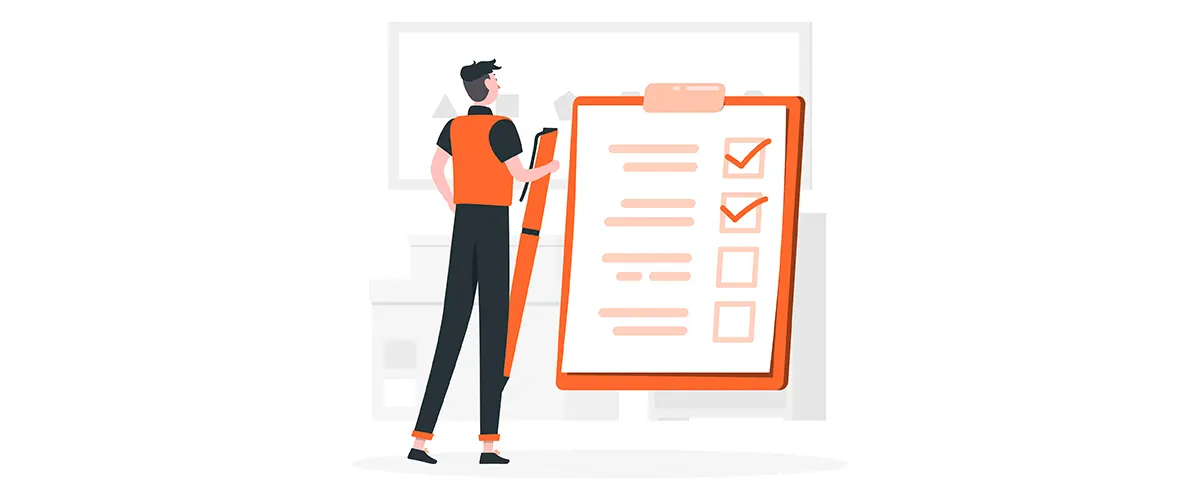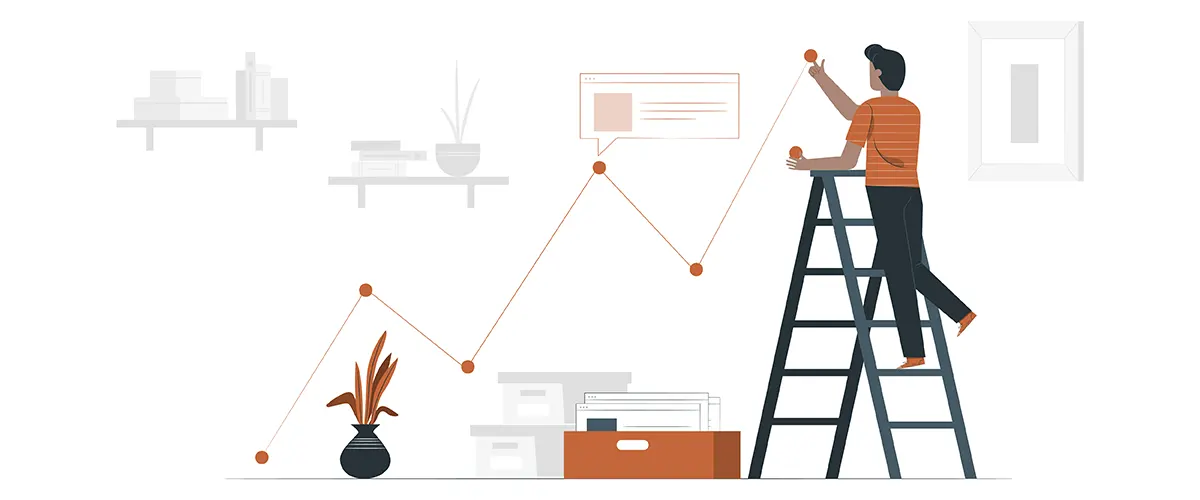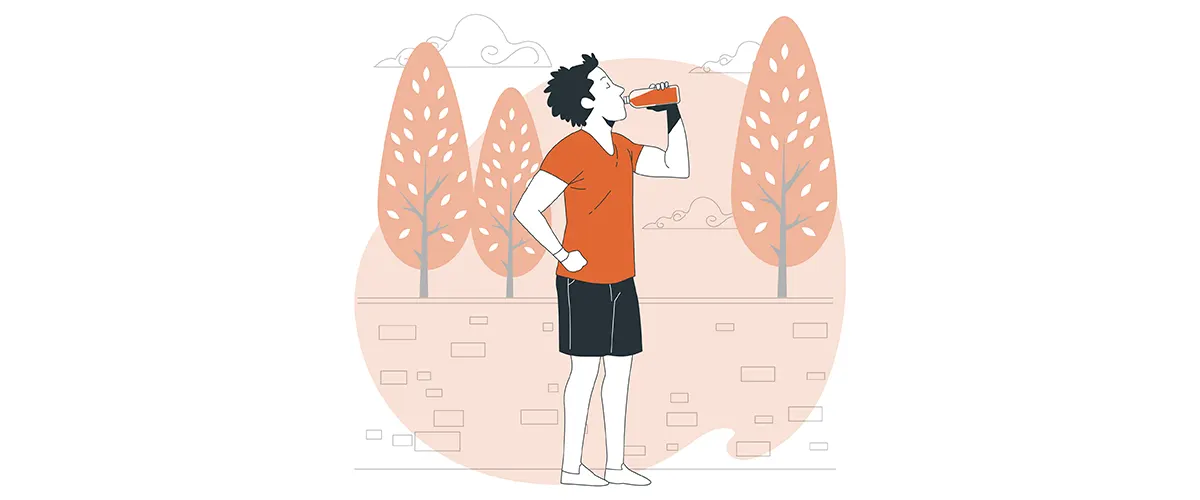Are you looking for practical smart study tips that complement your hard work? Then, you are in the right place.
This article will tell you some of the most clever techniques on how to study smart, which you can include in the lesson plans that help you concentrate better and yield a productive outcome.
Ready to start? Let’s go!
- ▪ How to Study Smart
- ▪ 1. Choose a Distraction-free Space
- ▪ 2. Use a Proper Setup: A Study Table and Chair
- ▪ 3. Schedule Your Study Time
- ▪ 4. Keep Away from Your Mobile Phone
- ▪ 5. Prepare a To-do List
- ▪ 6. Try Learning the Information in Different Ways
- ▪ 7. Study in Small Segments
- ▪ 8. Read Different Subjects in a Single Day Instead of Focusing on One
- ▪ 9. Ensure You Have Some Light Food
- ▪ 10. Avoid Multitasking
- ▪ 11. Take Short Breaks During Your Study Hours
- ▪ 12. Be Attentive in Your Class
- ▪ 13. Start With the Difficult Subject First
- ▪ 14. Never Leave a Topic Not Understood
- ▪ 15. Test Yourself Often
- ▪ 16. Develop a Regular Study Habit
- ▪ 17. Try Moving Out of Your Room Sometimes
- ▪ 18. Read Out the Information Loud
- ▪ 19. Concentrate on the Process and Not the Result
- ▪ 20. Keep track of Your Everyday Progress
- ▪ 21. Fresh Your Mind Before Studying
- ▪ 22. Keep the Weekends for Revisions
- ▪ 23. Keep Your Study Notes Organized
- ▪ 24. Study in the Morning
- ▪ 25. Study Before Going to Bed
- ▪ 26. Reward Yourself After Every Session
- ▪ 27. Exercise Regularly
- ▪ 28. Get Enough Sleep
- ▪ 29. Include Omega 3 -Fatty Acids in Your Meal Plan
- ▪ 30. Drink a Minimum of Eight glasses of Water in a Day
- ▪ Wrapping Up
- ▪ FAQs on How to Study Smart

How to Study Smart
1. Choose a Distraction-free Space
Wondering the critical factor to an adequate lesson time? It’s your study space. This point will always come first when looking for tips on studying smart.
Studies suggest that a dedicated study environment is a significant mood booster for students that motivates them to study. Hence, you must select a distraction fee study space at your home. An organized area will help you focus on your lessons.
Do you have a separate study space at your house for your study sessions? If not, consider creating one soon, and see the results flowing.
2. Use a Proper Setup: A Study Table and Chair
Once you know your study area, it’s time to focus on the setup. Many students prefer studying in bed, and there could be a proper setting. However, we recommend using a study table chair during your lesson times.
Sitting for long hours to prepare your lessons can often be overwhelming. You might suffer neck or back pain, especially while studying on the sofa or bed. Using a study table discards the possibilities of body pain. It helps you focus more on your textbook and worry less about anything else!
Do you use a proper setup for your study times, including a table and chair? If not, include it among the best tips to study well and set up one as soon as possible!
3. Schedule Your Study Time
You are set with your space. Now comes the central part, i.e., a proper study timetable routine. You can make a routine anytime, but it might be hard sometimes. Therefore, set a usual study time based on your availability for that particular day.
When you wake up from sleep, run the routine inside your mind and see when you are available on that day. Accordingly, set the alarm for your lessons. Instead of going for long-term practices, consider scheduling daily.
Does it sound similar to something you have been planning to try out for a long time? Then, why not from today?
4. Keep Away from Your Mobile Phone
One of the most effective tips for focusing on studies is keeping your phone away during lessons. There’s no denying the fact that mobile phones are the biggest distraction for the young generation. If you are not reading digital PDF notes on your phone, keeping them away when studying is better.
If you’re reading from an online source and need to keep the phone with you, muting notifications for all other applications, mainly social media, is a must. Are you a game buff? Then, blocking the gaming apps is a must too.
This applies to all distraction items like other electronic tools, video games, puzzle games, etc. Your study space should be devoid of these elements to ensure better concentration on the lesson.
5. Prepare a To-do List

Another entry in the how-to study smart list will be a To-do list. A To-do list is an effective tool that helps you cover your lesson perfectly. When you look at the pending subject assignments and homework to be done and feel overwhelmed, the To-do list comes in handy.
Prepare a To-do list at the beginning of your lesson and allot specific time to the pending assignments. Try wrapping them up within the time. It also helps to increase your speed.
Try this technique out for your following lesson plans! As you tick off the first topic after completing it, it will give you confidence like no other.
6. Try Learning the Information in Different Ways
Learning a single concept through various ways among the practical tips to study smarter. Research shows different media stimulates different segments of the brain. The more the areas are activated, the better it helps retain the information inside.
Consider learning a new topic in different ways. Refer to your class notes, textbooks, and online resources. You can even teach the concept to someone else or discuss the same with your fellow mates. In this one, a new perspective on the topic might open up.
Applying all the methods at a time might be pressuring. Instead, try grabbing a particular way whenever you start with a new topic.
7. Study in Small Segments
Another must-dos in the how-to study smart list is preparing your lessons in shorter segments. Trying to cover up all at once will lead you nowhere. Even if you remember it today, you’ll forget it the next day you start with a new chapter.
Whether it’s the complex physics concepts or memorizing a literary poem, this formula always helps. Studying in small chunks is an effective intelligent study tool. It will help you embed the information better inside your brain, and you’ll memorize it for a longer span.
Start following this from today and see if you can spot the difference?
8. Read Different Subjects in a Single Day Instead of Focusing on One
Did you know research by psychologist Doug Rohrer says, studying multiple subjects in a day is more impactful for memorization than reading one topic in a day?
Suppose you’re preparing for a science-based entrance that includes science, math, physics, and chemistry. When you read too much of a subject in a day, it could be exhausting. It’s great if you read a bit of all the topics daily rather than sticking to one.
Count this in as a pro tip in the list of how to study smart for neet. Try stretching your lesson time for every subject. It helps your brain encode the information fast.
9. Ensure You Have Some Light Food
Focus on studies, and your body energy goes hand in hand. If you’re trying to concentrate with an empty stomach, it’ll take you nowhere. On the other hand, eating something too heavy before your lessons might get you tired.
That’s why having a light meal helps before your study sessions. You’ll neither feel sleepy nor in pain due to less energy. You might have some apples, almonds, and a glass of milk before you start.
Do you include light meals before your study times?
Read Also: What To Eat Before An Exam
10. Avoid Multitasking

Multitasking during your study sessions isn’t a good idea. As a study suggests, even people who claim to be good at it, most of the time, aren’t better at it than the average person. Studious candidates concentrate on one thing at a time.
This is a crucial inclusion in the how to study smart list. Avoid multitasking when you are studying. Focus solely on your lesson instead of replying to your WhatsApp messages, tuning in to your favorite music, or watching a show on the television.
Consider putting your handset in airplane mode and create a study space separately from your TV room to make this method effective.
11. Take Short Breaks During Your Study Hours
How often do you take breaks during your study hours?
Many students study for a long time without any break in between. This can create the information to jumble up inside your brain. Hence. Taking short study breaks is among the best tips to focus on studies.
Small breaks during lesson times can work as a token of appreciation when you have just solved a complex chemical equation. Short breaks are essential to re-energize your mind for further studies.
Try grabbing coffee or a plate of snacks during your break. You can also take a short walk on your balcony and stretch your hands. After you have put on extra enthusiasm for the next chapter, it’ll be time to return to your desk!
12. Be Attentive in Your Class
When you look for ways to study smart, not hard, pin in this point. Being attentive to your class when the teacher is teaching something is among the best ways to learn a concept. When you decode the information in the class, chances are less that you’ll forget it later.
You should take running notes while the teacher explains a concept and highlights the main pointers. Ask your doubts and clear them in the class itself. Never go back with a question in mind.
Are you in the habit of regular notetaking? If not, it’s time to start with it.
13. Start With the Difficult Subject First
Is there a subject that comes up in your nightmares or one that you don’t want to study again? If yes, start preparing for it first, instead of escaping.
If you give less time to the complex subject and do not study it enough, things will get overwhelming before the exam day. That’s why allocating enough time to that particular subject is necessary.
It might appear challenging at first. However, your panic will blow away as you read the subject daily and move up on the syllabus ladder.
14. Never Leave a Topic Not Understood
One of the common mistakes that students often commit is skipping a topic without understanding it. Or, they often think this might not come in the question paper. Whichever way you think, it’s not correct.
You can never assume beforehand how the questions will drop in your exam. Also, leaving a topic without understanding can cost you in the long run. Every topic is essential.
This is a crucial tip in how to study smart lists. Whenever in doubt, reach out to your teachers for help. You can refer to different resources and discuss them with a friend who understands the topic well.
Once you have cleared your doubts, you are set to move to the next topic.
15. Test Yourself Often

Research shows that self-testing is the most helpful tool that helps upgrade your academic performance. Regular evaluations help you track your overall performance and understand your current standing.
Instead of only reading the notes, start quizzing yourself on what you have learned. Conduct mini-assessments where you write down your readings without looking at your textbook. Reach out to your teacher for corrections and let them suggest to you how you can improve.
Do you test yourself often? If not, it’s time to start this practice on oswal.io and see the results!
16. Develop a Regular Study Habit
Do you know the chief characteristic of an ideal student? They never skip their lessons. One significant inclusion in the how-to study smart list is never missing out on your lesson.
There will be times when you don’t feel like opening your textbook. But you should still open it and revise the initial chapters. Taking a gap from studies even for a day can cost your concentration for the next day.
So, never break the consistency of studying regularly. Even if you are learning less, make the most use of that time.
17. Try Moving Out of Your Room Sometimes
You might love your entire study space, but studying there always could be monotonous. That’s why little changes in your study area are recommended. It’s among the most clever tips to study smarter.
Consider choosing a decent coffee shop or a corner to sit in the library to prepare your lessons. The little changes in your schedule can refresh your mind and yield better productivity. Be picky with the difference and choose a place that helps you concentrate well on your books.
Have you ever tried changing your study location temporarily?
18. Read Out the Information Loud
Different students have different learning methodologies. Some like to read it out loud, while some memorize it in their minds. As a practical tip on how to study smart lists, reading out the information aloud is mandatory.
Research suggests reading the information aloud is the key to learning and memorizing the concepts faster and better. Reading out loud information helps you both see and read the data. It helps enter the information smoothly inside your head.
You need not read every piece of information out loud but at least read the main points. This will help you memorize the concepts better.
19. Concentrate on the Process and Not the Result
As an ideal student, you should focus on the process instead of desiring the outcome. Psychologist Carol Dweck says, exemplary students
- Are focus-oriented instead of leaning toward the result
- Have lots of self-confidence
- Are you ready to face challenges
- They are willing to move out of their comfort zone and push themselves to do better
Instead of focusing on the grades, you should be more curious to learn. This approach automatically helps you do better in your studies.
20. Keep track of Your Everyday Progress

Keeping track of your progress and how the day was is a crucial step to studying smartly. Before bedtime, run through your mind what you learned today. Was there anything new?
It could be hard initially, but it will be effective in the long run as you get a grasp of it. It sharpens your memory and encourages you to study and learn new topics every day.
21. Fresh Your Mind Before Studying
Here comes another addition to the how to study smart list. Many things could go through your mind before you open your textbook. Clearing all the distractions before you start reading is crucial.
You can go for a short meditation season and fix your mind. Keeping your mind in one place while you read the essential topics is crucial, and meditation or yoga could be an excellent remedy.
Close your eyes, take some deep breaths, and clear all the unwanted thoughts from your mind.
22. Keep the Weekends for Revisions
One of the most effective points in how to study smart lists is revision. Revisiting your study materials is crucial as it helps you stay in touch with your current syllabus. As you learn new information daily, you might be pressured to remember it all at once.
Therefore, never miss out on revisions. Consider allotting the weekends for self-evaluation and revision. After a week-long hectic schedule, weekends are reserved for relaxation.
While you should never compromise on various recreations, revising your resources for even an hour could help immensely.
23. Keep Your Study Notes Organized
Wondering what comes next in how to study smart for exams in less time? It’s keeping your notes organized. An ideal student not only focuses on practical notetaking but also keeps their notes organized.
Use separate notebooks for all subjects.
Mark the critical points in red or any highlighter
Keep your notes handy in one place at your desk
It creates an organized study environment and helps you keep your focus on the lesson.
24. Study in the Morning
Scheduling your study hours in the morning is among the finest tips to study well. Mornings are usually noise-free, and fewer distractions help you concentrate on your lesson plans. Learning in the morning helps you embed the concepts easily.
If you are already doing it, that’s great. If not, and you struggle to get up early in the morning, it could be heard in the beginning. In such a case, you can develop the habit of going to bed early or set an alarm that helps you rise early.
25. Study Before Going to Bed

Many night owls prefer preparing their lessons night-long. But, it could be detrimental to your health in the long run. Instead, allow an hour or two in the night to revise your notes or prepare something new.
Examples show studying before bedtime works great for transferring the information into your brain. It enables you to remember the points better.
Before bedtime, you should avoid reading in bed as that might get you sleepy.
26. Reward Yourself After Every Session
Self-rewards are among the best boosters that help you be focused on your lessons without finding them tedious. After an exhaustive session, you should reward yourself with small tokens.
You can go for a walk at the nearby park or tune in to your favorite song. Activities post-study sessions help refresh your mind and boost you to be more attentive to the upcoming lessons.

27. Exercise Regularly
After reading so many technical tips on how to study smart, it’s time to focus on health. Your overall well-being has a direct connection with your studies. If you are not keeping well, you’ll not be able to concentrate.
Exercise keeps your body and brain healthy. Exercising for half an hour at least 304 times a week will save you more energy and help in memorizing the concepts better.
28. Get Enough Sleep
One of the crucial steps to a compelling study is getting enough sleep, at least 7-8 hours the night. How would you pay attention to the class if you’re sleepy?
Try not to go for the all-nighters. Sleep is a necessity, and you must never compromise on it. You stay energized when you sleep well, which yields better productivity during the lessons.
29. Include Omega 3 -Fatty Acids in Your Meal Plan
Another crucial inclusion in the How to Study Smart list is omega-3 fatty acids in your diet plan. Research indicates it is critical for proper brain functioning and helps reduce anxiety among students.
The brilliant food list might include:
- Almonds
- Cauliflower
- Walnuts
- Pumpkin Seeds
- Sardines
Eating healthy will keep you healthy and help you stay productive in your studies.
30. Drink a Minimum of Eight glasses of Water in a Day

Do you know the greatest enemy of your brain? It is dehydration. Hence, drinking plenty of water in a day requires a minimum of eight glasses to keep your body hydrated.
Also, carry a water bottle to the exam hall and take some after half an hour or 40 minutes. It will help you be hydrated and positively influence your exam performance.
Wrapping Up
These were the top concentration tips to study smarter. Hard work and smart work are key to success in this digital setting when you know what you’re doing and are specific about your goal, the plan matters.
So, focus on the strategy and execute it well to see the results. Start implementing the methods from your nest study sessions themselves.
Which technique from the above list did you like the most?
FAQs on How to Study Smart
Q1. What is the most effective way to study?
Ans. The most effective way to study pertains to revision of the material, such as summarizing, or group study. Tailoring your study method to your learning style, setting specific goals, and regularly reviewing your progress enhances effectiveness and efficiency.
Q2. What is the best study method for exams?
Ans. The best study method for exams combines active revision, solving sample papers, or Question Banks. Create a schedule, focus on understanding concepts, and practice with past exam papers. Taking regular intervals and maintaining a healthy lifestyle aid retention.
Q3. What does studying smart mean?
Ans. Studying smart means maximising learning efficiency by using effective tools and techniques. It involves understanding your learning pattern, giving priority to important topics, frequent revisions, and integrating study sessions with rest and a balanced lifestyle.
Q4. Why is studying smart better than studying hard?
Ans. The cardinal rule of quality over quantity. Hence making studying smart better than studying hard. Smart studying leverages efficient techniques to grasp and retain information, leading to better understanding and remembering, while reducing burnout and time wasted on less effective methods.
Q5. How do I study for exams with less time?
Ans. To study for exams with less time, prioritize key topics, and focus on what you think can yield you more marks. Practice with past papers, create summary notes and engage in short, focused study sessions.
Q6. What is the 2 3 5 7 study method?
Ans. The 2 3 5 7 study method is a time management technique. Allocate study sessions of 2, 3, 5, and 7 hours throughout the week. This varied approach helps maintain focus and engagement, catering to different subjects and intensity levels.


This web site is really a walk-through for all of the info you wanted about this and didn’t know who to ask. Glimpse here, and you’ll definitely discover it.